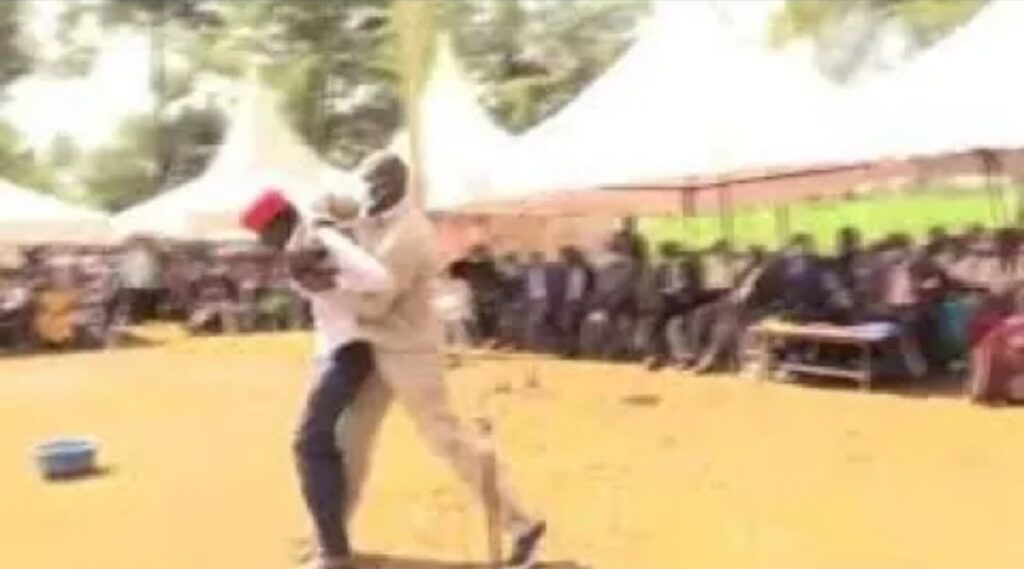At a burial ceremony that was initially meant to honor a respected community elder, tensions flared dramatically when Didmus Barasa, a local politician who had recently voted in favor of the controversial finance bill of 2024, arrived.
The atmosphere, which had been somber and respectful, shifted swiftly to one of anger and discontent as attendees recognized Barasa.
As he attempted to pay his respects, a group of mourners, incensed by his support for the bill they believed would have detrimental economic impacts on their community, confronted him.
Verbal exchanges quickly escalated, and before long, the situation turned physical. Barasa was jostled and struck repeatedly, likened to a “Burukenge,” a term used to describe someone receiving a severe beating.
The scene was chaotic, with shouts and cries filling the air as more people joined the fray.
The local authorities, caught off guard by the sudden outbreak of violence, struggled to regain control of the situation.
Efforts to shield Barasa from the mob were initially unsuccessful, and he endured several minutes of rough handling before police reinforcements could effectively intervene.
Amidst the turmoil, several individuals were injured, and the solemnity of the funeral was shattered by the violent clash.
In the aftermath, community leaders called for calm and urged residents to find more constructive ways to express their grievances.
The incident highlighted the deep divisions and strong emotions surrounding the finance bill, and it underscored the challenges faced by politicians in navigating such contentious issues.
Barasa, though shaken, later made a public statement emphasizing his commitment to dialogue and understanding, hoping to bridge the gap between his political stance and the concerns of his constituents.


